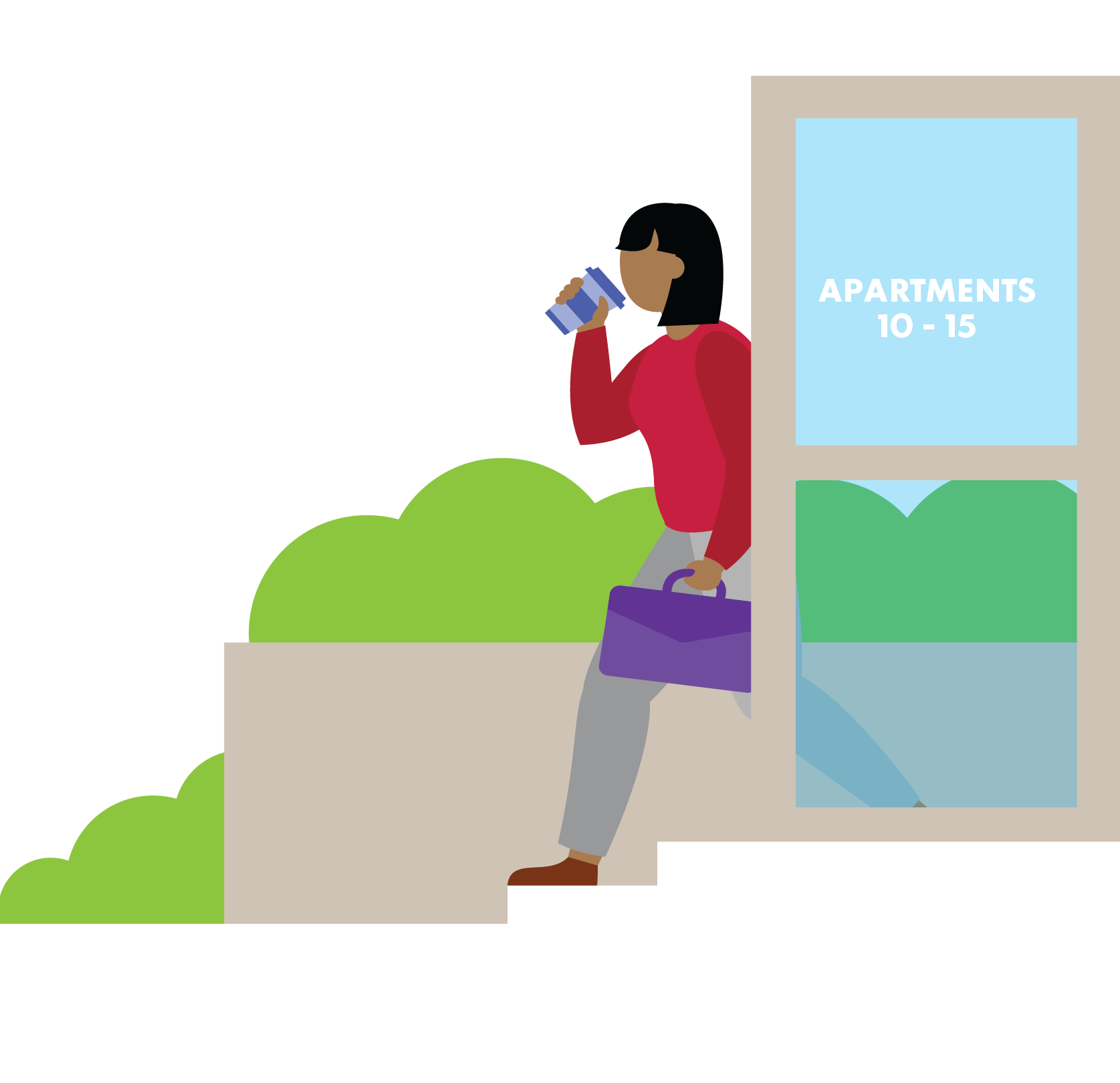This is the plain text web version of the 'Explainer Document'. To view the designed PDF version with images and tables, please click on the link below.
Why are we making changes to our waste service
The Victorian Government announced that all councils must move to a 4-bin service, separating garbage, food and garden organics (FOGO), recycling and glass.
From late 2022, we will start making changes that will affect how often we collect your bins, their number and size. The changes will also affect how your hard waste is collected and how ratepayers are charged for the service.
We are proposing a new waste service based on feedback from the Moreland community.
We are ready to share our proposed waste service and draft Kerbside Waste Service and Charge Policy, and want to hear what you think.
In particular, we want to hear:
- Any feedback you have on the proposed service changes.
- Do you think the proposed service is reasonable for the future of Moreland?
- Is there anything that we have missed?
Purpose of the 'Explainer Document'
The 'Explainer document' summarises the proposed waste service outlined in the draft Kerbside Waste Service and Charge Policy (“draft waste policy”).
The draft waste policy sets out how Council’s future waste service would work, including bins and hard waste collections, and how ratepayers are charged for the service.
The 'Explainer document' explains why we have chosen the proposed service and what it might mean for households and businesses in Moreland.
You can find the full draft Kerbside Waste Service and Charge Policy here (opens in a new tab) or via the Document Library on the main page.
What is the proposed standard service?
The proposed ‘standard' service would introduce:
- Weekly Food and Garden Organics (FOGO) collections (120 litre bin)
- Fortnightly Garbage collections (with a larger 120 litre bin)
- Fortnightly Recycling collections (with a larger 240 litre bin)
- New monthly Glass collections (120 litre bin)
- 2 booked hard waste collections each year
The proposed standard service includes a larger 120 litre garbage bin and a larger 240 litre recycling bin to help support a change to fortnightly garbage and recycling collections.

Variations to the standard service
We heard about the needs of different households, so in addition to the proposed standard service outlined above, we have included options for households to tailor the service to meet their needs.
You can find out more about what these changes might mean for your household below.
What are the benefits of the proposed service?
We heard that reducing waste and keeping costs low was important to the Moreland community. We believe the proposed waste service best aligns with community feedback and our goal to reduce waste.
Of the shortlisted options that we presented in the last round of consultation, our proposed service:
About the proposed changes
The draft waste policy proposes changes to the size and number of your bins and how often we pick them up.
The proposed changes would also impact how we collect hard waste and how we charge for our waste service.
The proposed waste service is based on feedback from the Moreland community. It could halve our waste sent to landfill and turn food waste into compost. It is also expected to offer the best long-term cost benefits.
Garbage
Our proposed standard service
- Fortnightly Garbage collections.
- Standard bin size increase to 120 litres.
How this compares to the current standard service
- Less frequent collection, but a larger 120 litre bin (instead of 80 litre bin)
- Collection on alternate weeks to Recycling.
Why has this been proposed?
We heard that reducing waste is important to our community.
Food waste makes up half of what is in an average household garbage bin.
All types of food waste can be put in the food and garden organics (FOGO) bin, including meat, seafood, leftovers, and fruit and vegetable scraps.
As all households will have a FOGO bin to put food waste in, there will be less in garbage bins and smelly food waste will be taken out of the garbage bin. This means garbage bins won’t need to be picked up as often.
Food and Garden Organics (FOGO)
Our proposed standard service
- Weekly Food and Garden Organics (FOGO) collections.
- Standard bin size of 120 litres.
How this compares to the current standard service
- More frequent collection.
- FOGO bins (may be shared) will be rolled out to all households (instead of current opt-in service).
Why has this been proposed?
We heard that people want their FOGO bins collected more often.
When food waste breaks down it can create unpleasant smells and attract unwanted pests in the FOGO bin. A weekly FOGO collection can help to manage this. It also helps us keep as much food waste out of landfill as possible.
Recycling
Our proposed standard service
- Fortnightly Recycling collections.
- Standard bin size increase to 240 litres.
How this compares to the current standard service
- Less frequent collection but a 240 litre bin (instead of 120 litre bin).
- Collection on alternate weeks to Garbage.
Why has this been proposed?
We heard that the size of the recycling bin was more important to people than how often it is collected.
We also heard that keeping costs low is important.
A fortnightly collection costs much less than a weekly one. Bigger items, like cardboard boxes, fit better in larger bins.
Glass
Our proposed standard service
- New Monthly Glass collections.
- Standard bin size of 120 litres.
How this compares to the current standard service
- New bins to be collected monthly (every 4 weeks).
Why has this been proposed?
We heard the amount of glass recycling households have varies greatly.
A monthly collection helps balance variable community needs and cost of collection.
Separating glass improves the quality and value of our recycling.
Some households with limited space will use shared bins or a glass recycling drop-off point instead of having an individual glass bin.
Hard Waste
Our proposed standard service
- 2 booked hard waste collections each year.
How this compares to the current standard service
- Booked collections replace municipal-wide collections.
- Households still have access to 2 collections each year, at times that suit them.
Why has this been proposed?
We heard that cleaner streets and reducing hard waste to landfill was important.
We also heard people want more flexibility in their hard waste service.
Experience elsewhere shows booked collections lead to less dumped rubbish, are more convenient and reduces waste going to landfill. A booked service also costs less than municipal-wide collectionsFor more information on the benefits of booked hard waste collections, please read our Hard Waste Fact Sheet here (opens in a new tab) or via the Document Library on the main page.
Service options for those who need them
We heard about the needs of different households. That’s why we have included options for these households to tailor the standard service to meet their needs, like changing the size of your bin.
We heard that fortnightly garbage collections would not suit some households, like large families or households using disposable nappies. We also heard that some households don't have space for 4 bins.
Below we outline what we heard during community consultation and how the draft policy addresses community concerns, including the options available to households.
Additional garbage options and concessions
We heard that fortnightly garbage collections would not suit some households, such as large households or households with disposable nappies
Households may choose to pay for a larger garbage bin (up to a maximum of 360 litres).
Households may choose to pay for a weekly garbage collection.
Households may be eligible for a concession for a larger garbage bin at no extra cost if:
- someone in the household has a medical condition generating waste;
- they are a large family with 5 or more dependants, including adults being cared for; or
- they have 2 or more children under 4 years of age in daytime nappies (NEW).
We will support high waste households to reduce waste and use their bins as effectively as possible.
Managing nappies and pet waste
We heard that some people are concerned about the smell of nappies and pet waste if garbage bins are collected fortnightly
Households may choose to pay for a larger garbage bin (up to a maximum capacity of 360 litres).
Households may choose to pay for a weekly garbage collection.
Households with 2 or more children under 4 years of age in daytime nappies may be eligible for a larger garbage bin at no extra cost.
Residents are encouraged to bag or wrap disposable nappies and pet waste. Other councils with fortnightly garbage collection have reported no ongoing issues and that nappy odour can be managed when nappies are bagged and tied.
A 'Community Nappy Trial' conducted by Lake Macquarie Council showed that the smell of bins containing nappies at the end of a fortnight was no worse than the smell of regular garbage bins at the end of week. The trial also showed that odour does not significantly increase with time, not with the number of nappies in the bin.
Larger bins
We heard that the proposed standard bin sizes might not be big enough for some households, for example share houses or households that generate lots of waste
Households may choose to pay for larger or extra garbage, recycling, food and garden organic (FOGO) or glass bins (up to a maximum capacity).
Space for 4 bins
We heard that some households, like apartments, townhouses, units and flats, do not have room to store four bins
People living in apartments, townhouses, units and flats, where space is limited, will use shared bins. Where bins are shared, there is a lower waste charge for all users.
Some households may need to use a glass recycling drop-off point instead of having a glass bin. We will work with residents at properties with shared bins to determine the most appropriate bin set-up for their property.
We are working with the State Government and other Councils in Melbourne to identify other suitable options for people living in apartments.
Reducing waste
We heard that some households do not create much waste. We also heard that households should be encouraged to reduce waste
Households may choose to use smaller garbage (80 litres) and/or recycling (120 litres) bins and pay a reduced waste charge.
Households are encouraged to continue home composting and use their food and garden organics (FOGO) bin for food scraps that are harder to compost at home, or while their compost bin is resting.
We will provide education to support households to use their bins effectively and reduce the amount of waste and recycling they create.
Smaller recycling bins
We heard that larger (240 litre) recycling bins would not suit some households, such as small fronted homes with limited storage space
Households may choose to keep their smaller (120 litre) recycling bin and pay a reduced waste charge.
The State Government will be introducing a Container Deposit Scheme (“cash for cans”) in 2023 which will accept glass, aluminium and plastic drink containers. This means people may have less in their recycling bin in the future, and not need a larger sized bin.
Financial hardship
We heard that people experiencing financial hardship, such as pensioners and low income families, should be supported to access waste services that meets their needs
People experiencing financial hardship may be eligible for a larger garbage bin at no extra cost added to their waste charge.
Reusing hard waste
We heard that people like salvaging items from hard waste collections for reuse
Community members may continue to salvage items for reuse from booked collections.
We will work with community to improve opportunities to rehome or reuse hard waste items before households book a hard waste collection.
Businesses and hard waste
We heard that some businesses using Council’s waste service want access to the hard waste service
Businesses paying the waste charge may choose to book up to 2 hard waste collections each year (if it safe for us to collect from the business).
Business needs
We heard that the proposed standard service would not meet the needs of some businesses
Businesses may choose to increase their garbage and recycling bin capacity up to 360 litres.
Businesses may choose not to have a food and garden organics (FOGO) bin if they have no need for it.
Businesses may choose to use Council’s Commercial Plus service if the standard service or a private contractor would not meet their needs.
What might the proposed changes mean for you?
We heard about the needs of different households across Moreland. These diverse households and their needs are represented by example community members ('personas') below.
We hope this helps to explain what the proposed changes could mean to a variety of households and businesses in Moreland.
Max has young children in nappies

As a ratepayer, Max will pay the waste charge based on the size of his bins.
Max may choose to increase the size of his garbage bin to help manage his household’s nappy waste.
Max has 2 children under 4 years of age in daytime nappies, and may be eligible for a concession to get a larger bin at no extra cost.
Alternatively, Max may choose to pay for a weekly garbage collection.
Do you have young children in nappies like Max? Is there something else that your household needs that we should consider?
Mahmoud has a large family

As a ratepayer, Mahmoud will pay the waste charge based on the size of his bins.
Mahmoud may be eligible for a large family concession as he lives with five dependants that he and his wife care for. If eligible, this would give Mahmoud a larger garbage bin for no extra cost.
Mahmoud may also choose to pay for a larger 240 litre food and garden organics (FOGO) bin to help manage his family’s food and garden waste. If Mahmoud’s family created lots of recycling, he may choose to pay for an extra 120 litre recycling bin, increasing his recycling capacity to 360 litres.
When the State Government’s Container Deposit Scheme (“cash for cans”) is introduced, which will accept plastic, glass and aluminium drink containers, Mahmoud may find his family doesn’t need a larger recycling bin.
Do you have a large family like Mahmoud? Is there something else that your household needs that we should consider?
Milo lives in a small household

As a ratepayer, Milo will pay the waste charge based on the size of each of their bins.
As a small household, Milo and their partner may choose to have smaller garbage and recycling bins and would pay a reduced waste charge.
Do you own your home and live in a small household like Milo? Is there something else that your household needs that we should consider?
Mackenzie and her family are a low waste household

As a ratepayer, Mackenzie will pay the waste charge based on the size of each of their bins.
As her family does not create much waste, Mackenzie may choose to have smaller garbage and recycling bins and would pay a reduced waste charge.
Mackenzie could use the food and garden organics (FOGO) bin for food waste that may not go in her home compost bin, such as meat, seafood, dairy and processed foods.
Do you live in a low waste household like Mackenzie? Is there something else that your household needs that we should consider?
Melissa lives in an apartment

As a ratepayer, Melissa will pay the waste charge, however as a resident of a multi-unit dwelling with more than four units, Melissa will share bins with her neighbours. Council will work with Melissa’s apartment complex to determine the most appropriate mix of bins and sizes for each of the four waste streams. Melissa, and all the residents in her apartment building, will pay a reduced waste charge for using shared bins.
Each household in Melissa’s apartment building will be able to book up to 2 hard waste collections each year, however we may work with the Owners Corporation to let others in the building know when someone else has booked a hard waste collection, so that we can collect the hard waste at the same time.
We will also work with Melissa and her neighbours to support them to separate their waste appropriately and reduce contamination in their bins.
If Melissa’s apartment block doesn’t have room for glass bins, residents may be able to take glass recycling to designated drop-off points.
Do you live in an apartment like Melissa or a flat, unit or townhouse? Is there something else that your household needs that we should consider?
Mick is an older person on a pension

As a ratepayer, Mick will pay the waste charge based on the size of each of his bins. Mick may be able to manage with bins that are smaller than the standard size. These will be easier to move and will reduce his waste charge.
As a low income pensioner, Mick may be eligible for a financial hardship concession. This concession will help if he needs extra garbage space.
If Mick is currently receiving services through Council's Age and Community Support services, he could speak to them about getting assistance to move his bins on collection day.
Are you an older person or on a low income pension like Mick? Is there something else that your household needs that we should consider?
Mario has disability and a medical condition that generates extra waste

As a ratepayer, Mario will pay the waste charge based on the size of each of his bins. However, Mario may be eligible for a concession for a larger garbage bin at no extra cost due to his medical condition or if he holds a low income health care card.
Do you have a medical condition like Mario, that generates extra waste? Is there something else that your household needs that we should consider?
Maddy lives in a rental property with housemates

As rental tenants, Maddy and her housemates will not pay the waste charge directly, this will be paid by their landlord. Maddy and her housemates may request an extra (120 litre) recycling bin to increase their recycling capacity to 360 litres, or a bigger (240 litre) FOGO bin, but this will need to be approved by their landlord as their landlord will need to pay the higher waste charge.
The household can arrange two hard waste collections per year. However, if the previous tenants have already used these collections, Maddy and her housemates will have to wait until next year to have their hard waste collected or they can arrange a one-off collection for a fee.
Do you live in a rental house like Maddy? Is there something else that your household needs that we should consider?
Martina is a business owner

Martina would pay the waste charge through her Council rates and is entitled to the same standard service as residential properties. If Martina has a safe place outside her shop that does not obstruct the footpath and can be safely picked up by a collection truck, she also has access to 2 booked hard waste collections.
To help with the extra cardboard recycling, Martina may wish to increase her recycling capacity. She could also consider increasing her garbage capacity if her business needs it. Both services have a maximum capacity of 360 litres. Increasing the capacity of either of these services will result in an increase in her waste charge. Martina may also choose not to have a food and garden organics (FOGO) bin, as her business does not create food waste.
If the proposed standard service cannot meet the demand of Martina’s business, she may choose to use Council’s Commercial Plus fee-for-service and pay for more bins.
Are you a business owner, like Martina, using Council’s waste service? Would you use Council's proposed waste service?
Mei lives in a block of units that uses a private waste contractor

Mei does not pay the waste charge because a private waste contractor services her block of units. This means her bins are not picked up by Council.
Mei could, however, choose to pay a one-off fee to book a Council hard waste collection to help her dispose of her broken whitegoods and bulky e-waste, if it safe for us to collect from her property.
Is your home serviced by a private waste contractor, like Mei? Would you access a booked hard waste collection for a fee?
How will Council charge for the waste service?
The waste charge will still be paid by ratepayers through a separate annual charge on Council rates.
The draft waste policy outlines how the waste charge is applied. It covers the cost of delivering the waste service to our community.
For households with individual bins, your waste charge will depend on the size of your garbage, food and garden organics (FOGO), recycling and glass bins.
In some cases, households may choose to have smaller or larger bins depending on their needs. Where available, having smaller bins will cost less than the proposed standard bin sizes, and larger bins will cost more.
Apartments, units, flats and townhouses will generally have shared bins if there isn’t space for each household to have 4 bins of their own. Where bins are shared, there is a lower charge for all users.
We will also expand waste charge concessions, increasing the number of households that may be eligible to get a larger garbage bin at no extra cost.
Click here to download our waste charge fact sheet (opens in a new tab) or access it via the Document Library on the main page.
What concessions are available?
We propose expanding waste charge concessions for ratepayers, increasing the number of households that may be eligible to get a larger garbage bin at no extra cost.
Concession categories would include:
- people with a medical condition generating extra waste
- large families with 5 or more dependants (including adults requiring care)
- households experiencing financial hardship (NEW)
- households with 2 or more children under 4 years of age in daytime nappies (NEW).
Ratepayers will need to apply for a waste charge concession and terms and conditions will apply.
Residents receiving support services through a Home Care Package, NDIS or Council's Age and Community Support service may be eligible for help to put their bins out each week. Eligible residents can speak to a team leader or their case manager to see if this is something they can get assistance with.
How did we develop the proposed service and draft waste policy?
Over the last 12 months, we have been talking to the Moreland community about their kerbside waste and recycling services. We heard about how a 4-bin waste service might impact Moreland (Stage 1 consultation in August 2020) and we sought feedback on short-listed options for a 4-bin service and hard waste (Stage 2 consultation in February/March 2021).
We received over 1,000 survey responses during Stage 2 consultation and conducted 6 online workshops with affected community cohorts, as well as 2 phone-in sessions.
You can read Word summaries of what we heard in Stage 1 Consultation here (opens in new tab) and Stage 2 Consultation here (opens in new tab).
We also worked with an independent social research company to better understand how a 4-bin service would impact specific groups in our community. You can read a summary of the key findings here (PDF, opens in new tab).
Alongside your feedback, we also worked with specialists to study the financial, operational and environmental performance of various options to help us choose a service that should work best overall.
Copies of these specialist reports are available in the Document Library on the home page of this website, with key information summaries in the Conversation Starter Kit used in earlier stages of consultation.
We welcome your feedback
Will the proposed changes work for Moreland?
Tell us at: conversations.moreland.vic.gov.au/waste
- Complete our online household survey or online business survey (or request a hard copy)
- Join an in-person or online workshop
- Call us during a telephone drop-in session
Community comments on the proposed changes are welcome until Sunday 5 September 2021.
What happens next?
Your feedback will help us refine our final waste service and prepare a final Kerbside Waste Service and Charge Policy that will be presented to Council for endorsement in late 2021.




